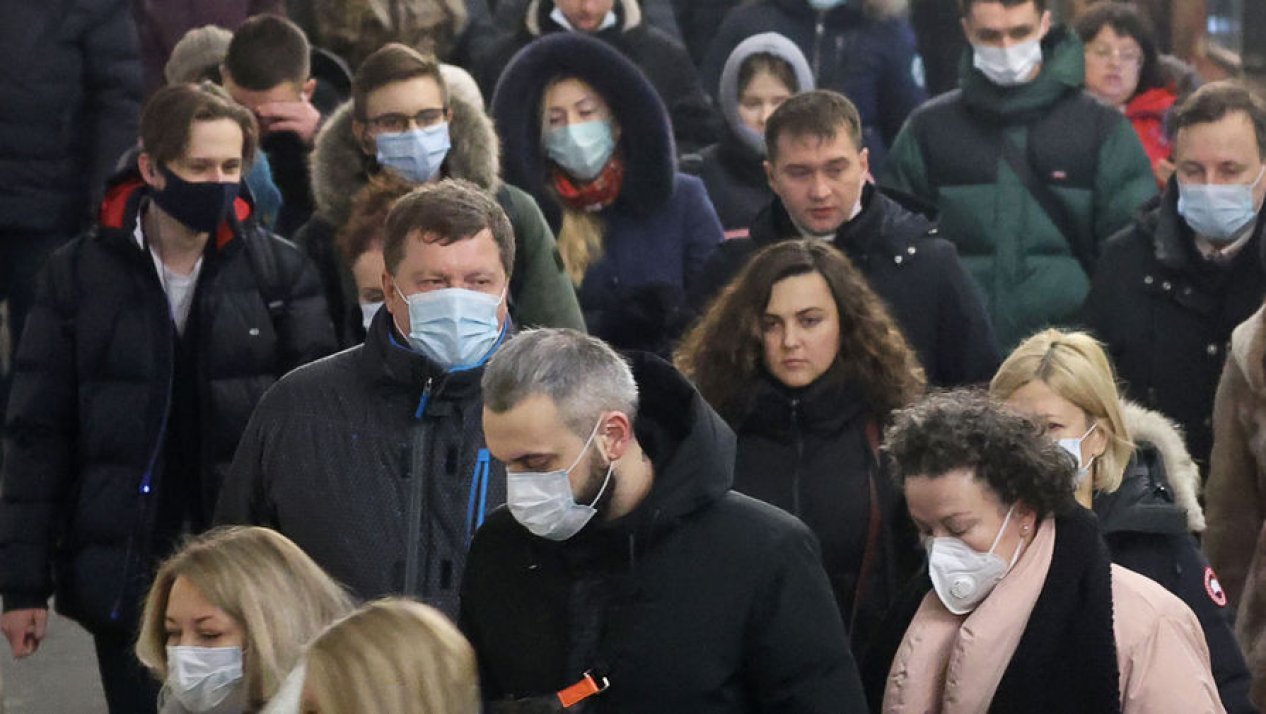
Today we see new consequences of strict quarantine. In New Zealand, due to strict quarantine introduced by an allegedly “smart” government, the immunity of the population has weakened, and basically, children being infected with various forms of viruses, en masse, end up in hospitals in serious condition. The scientific name for this is “immunity debt”, which the entire population has to pay, but first of all it hits young people and children, REAL party chairman Ilgar Mammadov wrote on his Facebook page.

Actually, most likely, this narrative of Mammadov was inspired by an article on this topic, published on July 8 by The Guardian.
“Wellington has 46 children currently hospitalised for respiratory illnesses including respiratory syncytial virus, or RSV. A number are infants, and many are on oxygen. Other hospitals are also experiencing a rise in cases that are straining their resources – with some delaying surgeries or converting playrooms into clinical space,” reads the article. The author, referring to some pediatricians, notes that the reason for this may be the lack of contact of potential patients with common pathogens during lockdowns, which prevents them from strengthening their immunity to a number of viral diseases. In this case we are not talking about the novel coronavirus.
REAL party chairman Ilgar Mammadov: No quarantine measures needed in Azerbaijan
The “immunity debt” phenomenon occurs because measures like lockdowns, hand-washing, social distancing and masks are not only effective at controlling Covid-19. They also suppress the spread of other illnesses that transmit in a similar way, including the flu, common cold, and lesser-known respiratory illnesses like RSA, according to the article.
Human respiratory syncytial virus (Human orthopneumovirus) is a type of virus that causes respiratory tract infections. It is a leading cause of lower respiratory tract infections in newborns and young children. Under normal conditions, treatment is limited to supportive therapy, it is possible to use an oxygen mask.
In New Zealand, lockdowns last winter led to a 99.9% reduction in flu cases and a 98% reduction in RSV – and near-eliminated the spike of excess deaths New Zealand usually experiences during winter.
But in the long term, it can create problems of its own: if bacterial and viral infections aren’t circulating among children, they don’t develop immunity, which leads to larger outbreaks down the line.
“The lack of immune stimulation… induced an “immunity debt” which could have negative consequences when the pandemic is under control and [public health interventions] are lifted,” the doctors wrote. “The longer these periods of ‘viral or bacterial low-exposure’ are, the greater the likelihood of future epidemics.”
New Zealand introduced a number of restrictions in connection with the coronavirus pandemic, comparable to quarantine measures in many countries, including Azerbaijan, in February last year, and already in February of this year began to partially mitigate them. Nevertheless, despite the similarity of such prerequisites, the outbreak of childhood morbidity is observed today only in this country and neighboring Australia.
Meanwhile, despite the presence of a certain rationale in the theory of “immunity debt”, it, in fact, correlates with the position of supporters of herd immunity at the expense of isolation measures, the most famous of which is British Prime Minister Boris Johnson.
Herd immunity is a term that denotes the moment when a population is protected from a disease, either by vaccinating a sufficient number of people, or by a large number of people who have already recovered and have developed immunity.
London, apparently under the influence of this theory, against the background of other European countries, hesitated to introduce restrictions on isolating the population and restricting movement within the country, closing borders and carrying out vaccinations.
As of June 30, since the beginning of the COVID-19 pandemic in the UK, more than 4.7 million infection cases have been confirmed, and more than 128,000 people have died.
Realities suggest that Downing Street’s theory of naturally attaining herd immunity has failed. Nevertheless, Boris Johnson’s government persists in its “laid-back” attitude towards the pandemic. In the UK, almost all restrictions related to the coronavirus pandemic are planned to be finally lifted on July 19, The Guardian newspaper wrote with reference to British Prime Minister Boris Johnson.

Thus, the theory of immunity debt that we have considered, like its British counterpart – herd immunity, is an unobvious dilemma that assumes, to the detriment of restrictive measures, allow the population to interact with various viruses in order to preserve and even strengthen the immunity of society with an eye to invulnerability against future epidemiological threats, including COVID-19.
But is the relationship between the coronavirus lockdown and the massive infection and severe illness of children in New Zealand so obvious?
To answer this question, it should be noted that separate statistics on child mortality during the last infectious disease outbreak in New Zealand are not officially published. Concerns about outbreaks of viral diseases, in particular among children and young people, expressed by a number of media outlets are mainly due to the results of new research by a group of French doctors and the conclusions of a number of medical experts, such as professor of theoretical epidemiology Sunetra Gupta from the University of Oxford. However, she admitted to the Evening Standard that the ambiguity of her conclusions does not allow her to publish them in reputable medical journals.
Thus, we are convinced that the observed general trend in the world suggests that today measures to isolate the population, coupled with mass vaccination, are so far the only effective and quite tested measure in an attempt to contain the pandemic of the deadly coronavirus. The hypothetical benefits of lifting pandemic restrictions have also not been proven, as is the relationship of the outbreak of infections with common viruses in New Zealand with lockdowns used in the country.
Is it possible, in such an uncertain situation, to argue that the second method is so much more useful that the first should be canceled? Of course not.
It is striking that in the text of Ilgar Mammadov’s publication, Azerbaijan is not specifically mentioned, however, getting acquainted with the publication, the reader, involuntarily, projects the emotional message about the dangers of the coronavirus situation to his country.




















